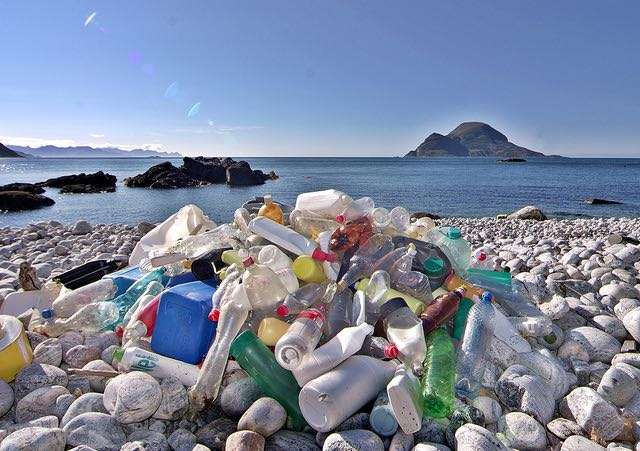Device That Translates 'Silent Speech' Could Revolutionize the Way People Communicate
MIT researchers have developed a computer interface that can transcribe words that the user verbalizes internally but does not actually speak aloud.

Scientists have engineered a mutant enzyme that can eat and digest hard-to-recycle plastics – and they created it entirely by accident.
The enzyme is a more developed model of the bacteria that Japanese researchers discovered in 2016. Their breakthrough made international headlines because of the bacteria's ability to digest polyethylene terephthalate (PET).
PET is favored for its lightweight, colorless, and durable properties that make it an ideal material for water bottles, plastic trays, blister packaging, and polyester clothing. Because it's virtually invincible against microbes, however, the plastic never degrades, making it a pollutant scourge on the environment.
Since the bacteria's discovery, scientists at the University of Portsmouth and the US Department of Energy's National Renewable Energy Laboratory have been trying to better understand how the bacteria is able to digest the plastic.
In the midst of their studies, the scientists accidentally created a super enzyme that is derived from the bacteria – except it is even stronger than the original.
The enzyme currently has the ability to break down the plastic in a matter of days, as opposed to the centuries it would take to naturally degrade in the ocean. The research team is now pursuing a patent on the enzyme so that they can develop its potential and increase its digestion time in order to wield the enzyme on a more industrial scale.
And since enzymes are non-toxic and biodegradable, the discovery could be a major breakthrough in sustainably recycling the millions of tons of plastic that are polluting the planet.
"What we are hoping to do is use this enzyme to turn this plastic back into its original components, so we can literally recycle it back to plastic," said McGeehan. "It means we won't need to dig up any more oil and, fundamentally, it should reduce the amount of plastic in the environment."
Professor McGeehan, Director of the Institute of Biological and Biomedical Sciences in the School of Biological Sciences at Portsmouth, said: "The engineering process is much the same as for enzymes currently being used in bio-washing detergents and in the manufacture of biofuels – the technology exists and it's well within the possibility that in the coming years we will see an industrially viable process to turn PET and potentially other substrates like PEF, PLA, and PBS, back into their original building blocks so that they can be sustainably recycled."
"Serendipity often plays a significant role in fundamental scientific research and our discovery here is no exception," Professor McGeehan said. "Although the improvement is modest, this unanticipated discovery suggests that there is room to further improve these enzymes, moving us closer to a recycling solution for the ever-growing mountain of discarded plastics."
The research is published in the Proceedings of the National Academy of Sciences journal.
Click To Share This Incredible Breakthrough With Your Friends – Photo by Snemann, CC
Be the first to comment